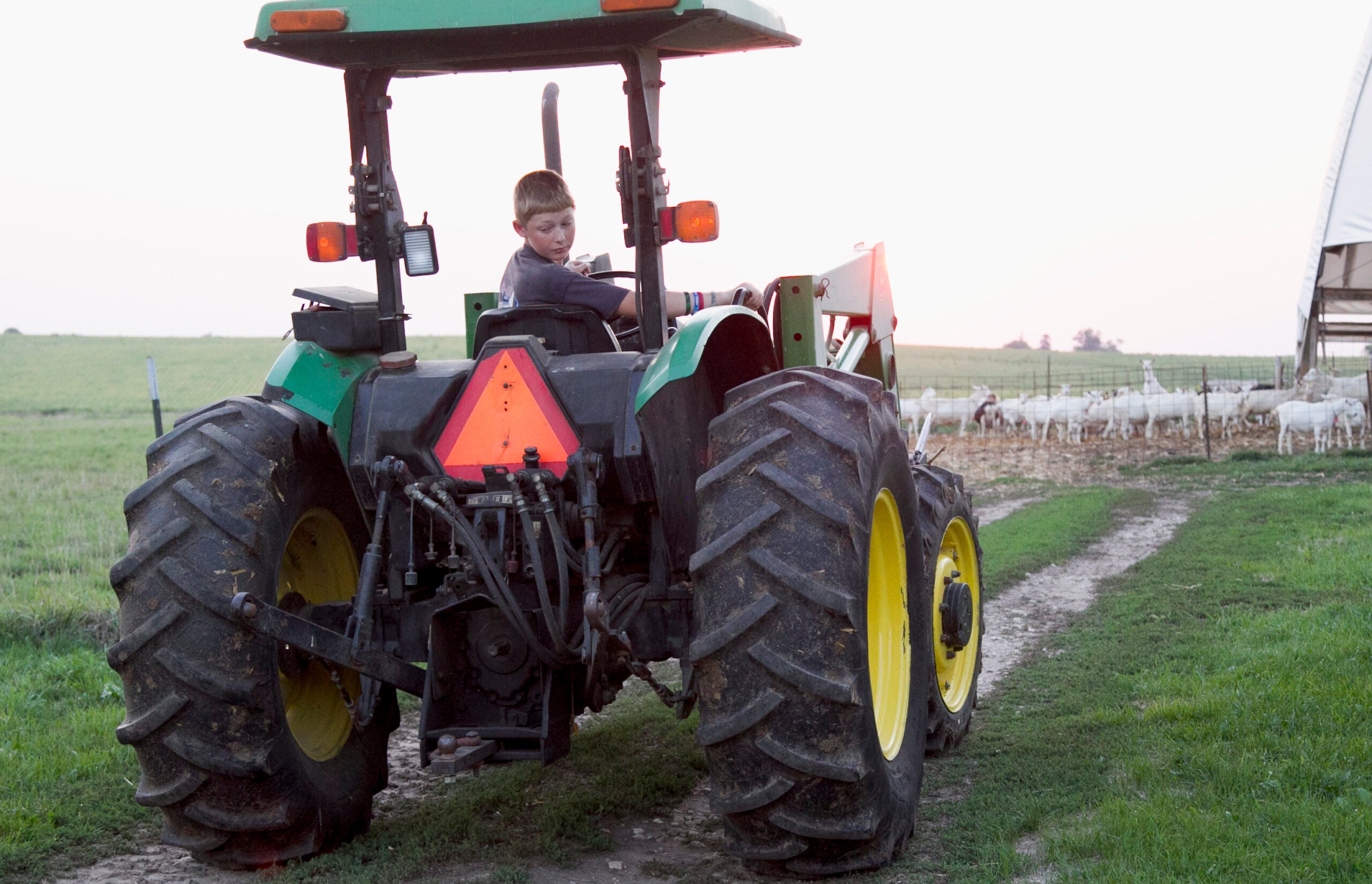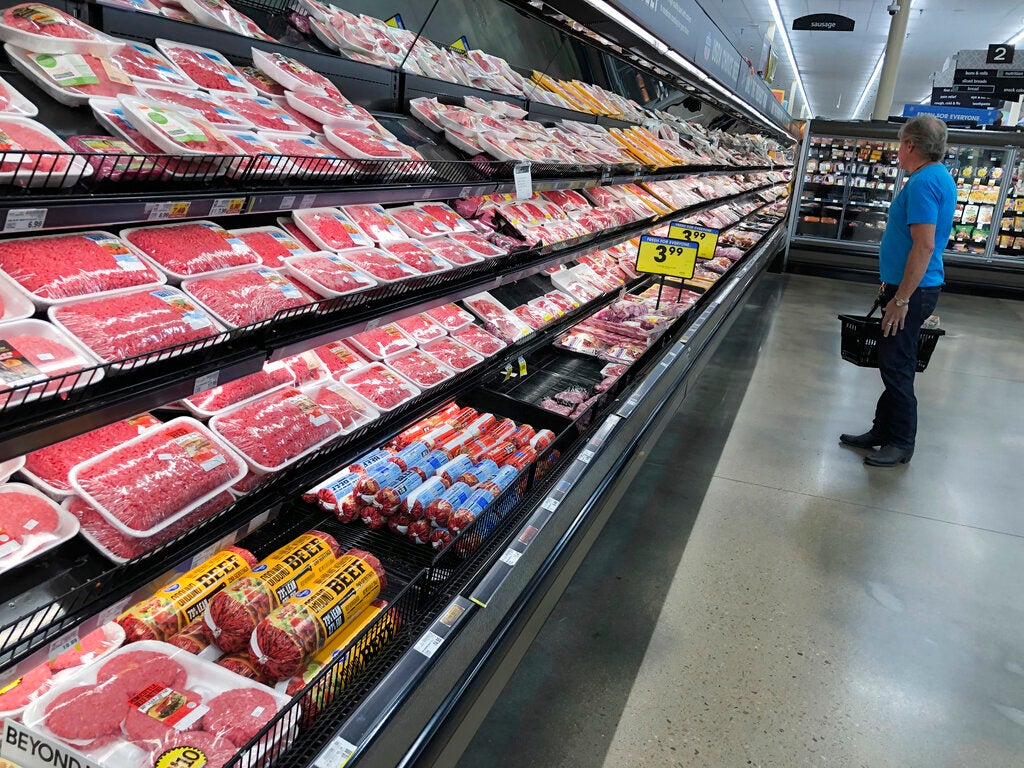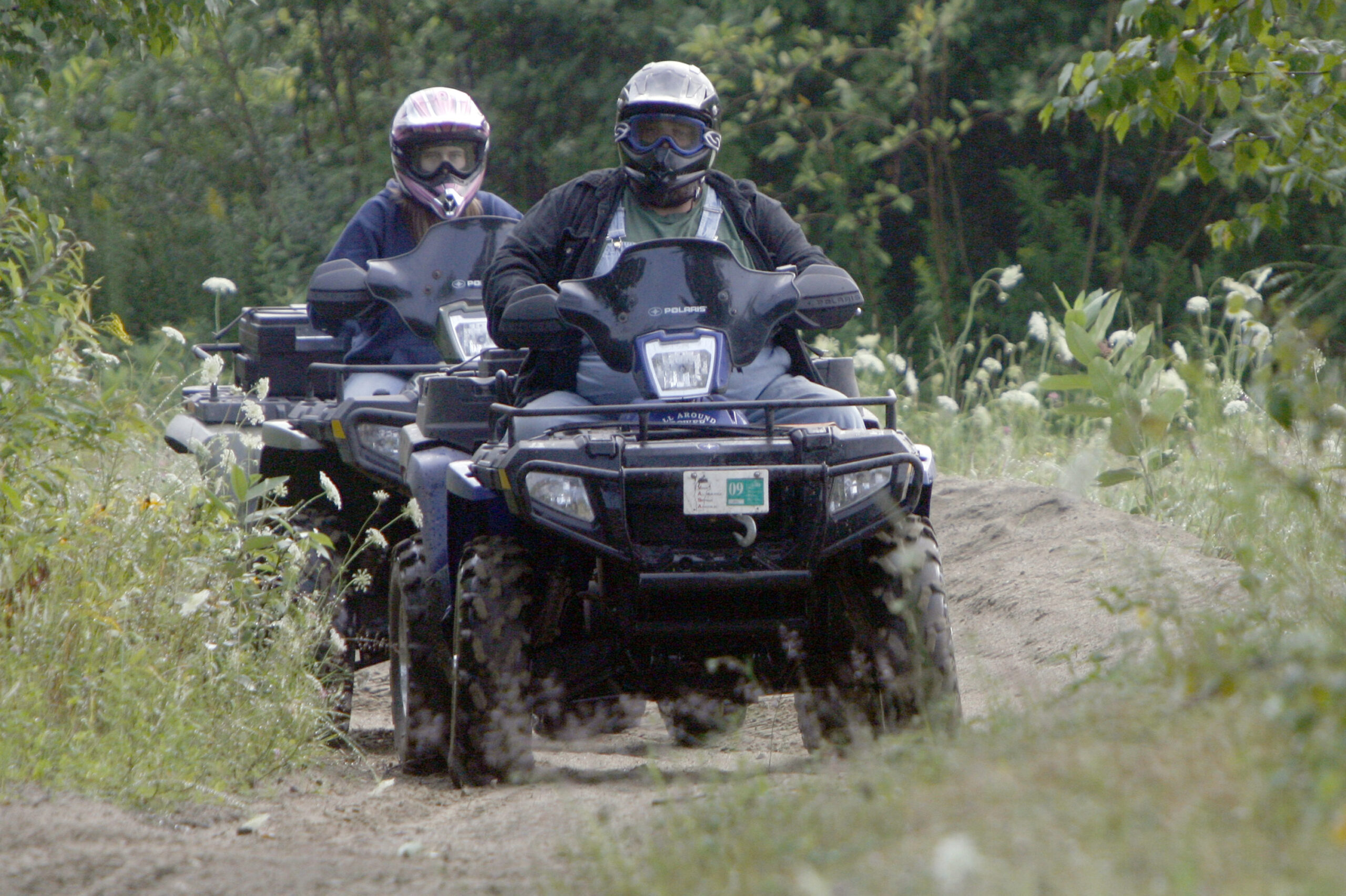Wisconsin farm kids are required to complete a training course before driving a tractor on public roads. But some experts say what was started as a safety mandate is allowing youth to operate farm equipment before they’re ready.
Since 1997, Wisconsin has required children under the age of 16 to complete a safety certification course in order to operate a tractor or other self-propelled equipment on a public road. By law, that training is open to children as young as 12 years old.
John Shutske, professor and agricultural safety & health specialist at the University of Wisconsin-Madison, said from the beginning, Wisconsin’s age minimum has been much younger than other farm states who have similar requirements. National best practices for farm safety recommend youth be at least 14 years old before being allowed to operate equipment.
News with a little more humanity
WPR’s “Wisconsin Today” newsletter keeps you connected to the state you love without feeling overwhelmed. No paywall. No agenda. No corporate filter.
“When Wisconsin passed this state law, I think it made a lot of us nervous,” said Shutske, who has worked in agricultural safety for more than 30 years. “What ends up happening is we have 12- and 13-year-olds out on the highway if they’ve gone through a 24-hour certification program and if they’re working for their parents or family members.”
He said the allowance has become even more troubling as Wisconsin sees increasing vehicle collisions with farming equipment.
Data collected by the National Children’s Center for Rural and Agricultural Health and Safety in Marshfield shows that 15 Wisconsin youth died in farming-related accidents between 2017 and 2020.
Shutske said he knows farm families want to involve their kids from a young age, often with the hope that the next generation will continue the farm into the future. He said the current shortage of workers is also putting pressure on producers to rely on kids for help around the farm.
“But if we allow them to do these other things, whether it’s through the false sense (of safety) that a certification provides or operating on a public highway, whatever it might be, I think we’re doing ourselves a disservice,” he said. “The long term vision is keeping those kids involved and safe for a lifetime of agriculture, not just a short period of time before they get injured or before something happens.”
Child development experts say preteens lack physical, cognitive skills to operate farm equipment
Marsha Salzwedel, project scientist a the National Children’s Center for Rural and Agricultural Health and Safety, said years of research on when youth are ready to operate tractors points to age 14 as the best minimum. That’s based in part on physical development, looking at when youth are typically able to reach the pedals and steering wheel comfortably while wearing a seatbelt. But she said it’s also based on cognitive development in youth.
“Teens and preteens, the 12- to 13-year-olds especially, tend to have some characteristics that might not be a good fit for operating equipment,” Salzwedel said. “They tend to be impulsive; they tend to be risk takers. Their judgment is not at an adult level. So they may not always judge speed the same; they may not judge slope inclines the same.”
But Salzwedel said even kids who are age 14 may not have the maturity or physical abilities to take on the task of driving farm equipment. She urged parents to evaluate their child’s readiness individually and not be afraid to delay putting them in the driver’s seat.
The center recommends children be at least 16 years old before driving on public roads.
A former farm kid herself, Salzwedel remembers growing up being told youth raised on farms were smarter and stronger than their city counterparts.
“I see these injury and fatality incidents coming across my desk day after day after day, and it gets disheartening after a while,” she said. “There’s a lot of work on a farm, and you can get the kids involved at 7 years old or at 12 years old doing jobs. But it doesn’t have to be driving a tractor.”
It’s not easy to say how many farm families are putting youth behind the wheel of a tractor, said Shutkse. But he said the tractor safety courses offered through UW-Madison’s Division of Extension are often dominated by kids who are age 12 and 13. He said that can make it difficult for the instructors, who are often using curriculum designed for an older audience.
“In some cases, we’re having to send kids home,” he said. “They don’t have the attention span to be able to sit still for 50 minutes for a conversation or a discussion or a demonstration. The other thing we see with the 12-year-olds is that they can’t reach the brake pedals or the clutch pedal.”
He worries the state’s mandate that these courses be open to 12-year-olds could make instructors liable if a student were to later get into an accident.
Shutske said the state should consider creating more age-appropriate programming for kids under age 14, leaving training on tractors and larger equipment to older youth. He hopes the ag community will start the conversation before a tragedy involving youth forces the issue.
“I want people to be thinking, talking and being proactive and thoughtful so that we can come up with a solution that’s acceptable to everybody,” he said. “That includes honoring the traditions, the legacy of getting kids engaged and interested.”
Wisconsin Public Radio, © Copyright 2025, Board of Regents of the University of Wisconsin System and Wisconsin Educational Communications Board.






